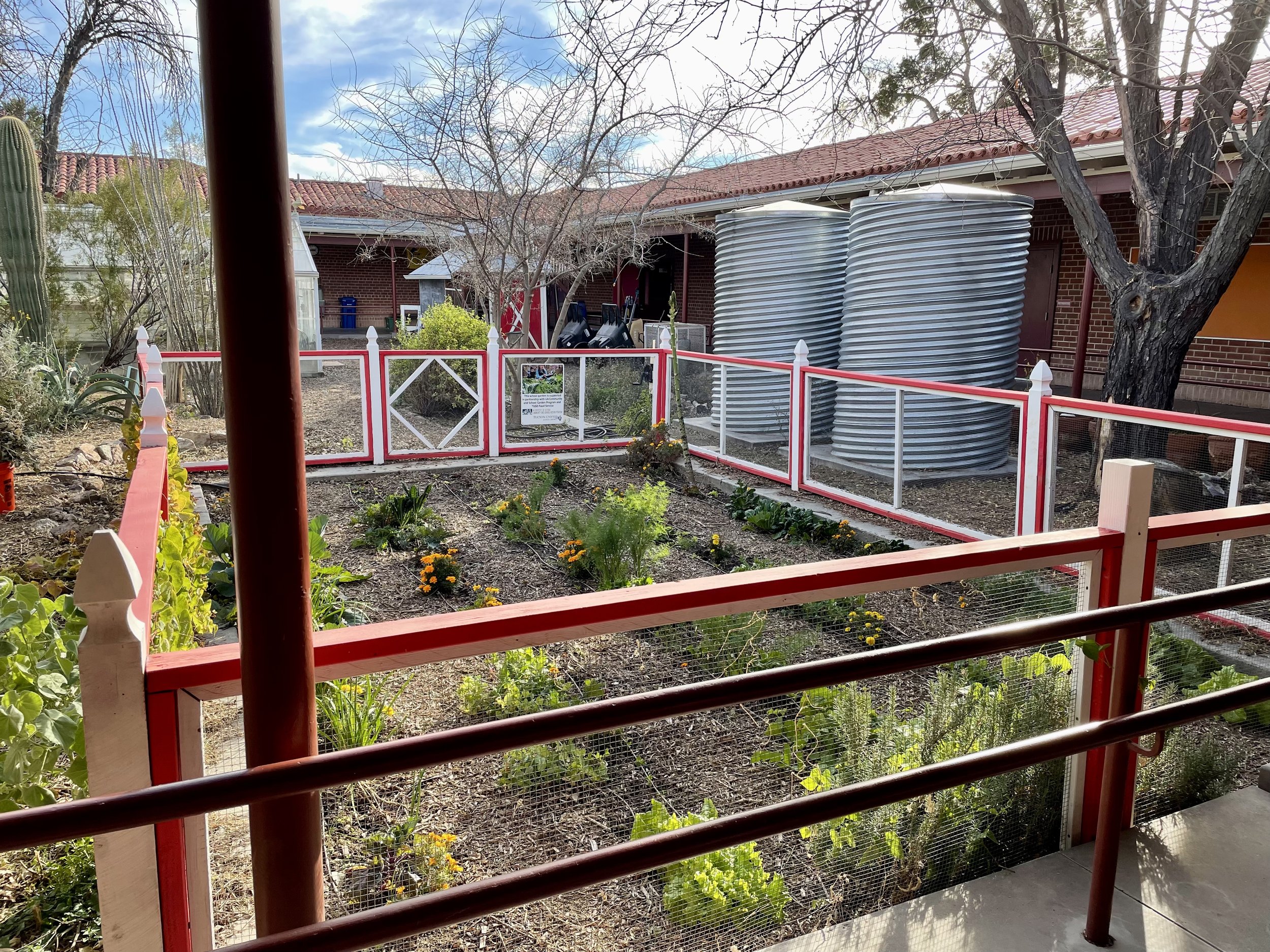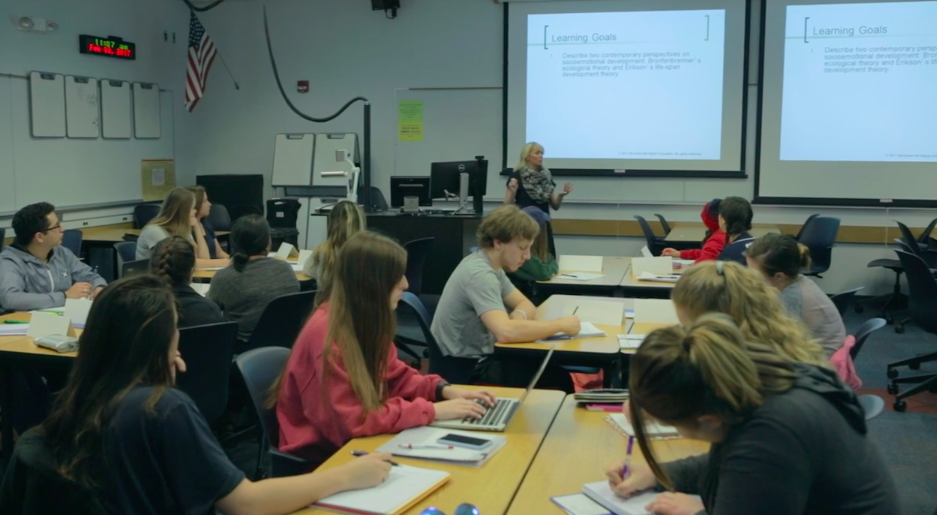Current and Ongoing Research
Impact of COVID-19 Disruptions on Education and Child Well-Being
Sallie Marston- Principal Investigator
Moses Thompson and Elizabeth Pope- Co-PIs
Current research examining the impact of school gardens on fourth grade students’ well-being, resilience, and ability to cope with trauma experienced as a result of COVID-19. Building on previous research of Marston and Thompson, this quasi-experimental, mixed methods project highlights the role of socio-spatial theories in geographic science as mediators to social-emotional development and well-being among children in schools.
Publications
Social Emotional Growth in School Gardens- AERA SEL SIG blog post
Pope, E. J., Marston, S., Thompson, M., & Larson, S. (2023). How learning gardens foster well-being and development through the promotion of purposeful play in early childhood and beyond. Theory into Practice, 62(2), 193-204. https://doi.org/10.1080/00405841.2023.2202137
Understanding Student and Faculty Experiences at HSIs During COVID-19
Elizabeth Pope- Principal Investigator
Monica Erbacher and Marla Franco- Co-PIs
Ongoing longitudinal, mixed methods study examining the impact of mitigation strategies put in place by HSIs on student and faculty attitudes, emotions, and perceptions. Results will indicate institutional and instructional strategies, supports, and communication that are most versus least effective, informing recovery from this pandemic and future planning to mitigate inequities in learning opportunities and institutional resources at 2 and 4-year HSIs.
Publications
Franco, M., Erbacher, M., & Pope, E. J. (2023). COVID-19 and Hispanic serving institutions: students’ perceptions, attitudes, and emotions surrounding online spaces and supports, Journal of Student Affairs Research and Practice, 60(1), 49-65. https://doi.org/10.1080/19496591.2022.2144741
Previous Research
Student Experiences with Failure
Elizabeth Pope, Monica Erbacher, and Lauren Pierce
Quantitative research examining pathways that lead to behaviors associated with Academic Entitlement and exploring how students experience failure in academic settings. This work serves the larger purpose of informing potential interventions to assist students in the development of healthy coping strategies that will lead to greater academic success and improved attitudes and behaviors.
Teacher Preparation Program Evaluation and First-Year Practices/First-Year Observation Project (FYTOP)
Mary McCaslin, Elizabeth Pope, Heidi Legg Burross
Research exploring how preservice teachers view and interpret student perspectives and experiences in schools and classrooms. The project was designed to explore how the perceptions of preservice teachers change throughout their coursework and with continued experience in elementary school classrooms. Findings have been used to modify course content in the Educational Psychology courses that are part of the elementary education program.
Preservice Teachers' Perceptions of Working with Learners Who Struggle
Heidi Legg Burross, Amy Olson, and Elizabeth Pope
Abstract: The purpose of this study was to use survey vignettes to begin exploring how preservice teachers believe they will respond to students who struggle academically. Thirty-one preservice and first-year teachers responded to three vignettes with their perceptions of a) the cause of the difficulty and b) their strategies for working with this and similar students. Participants were drawn from three university preservice teaching programs: a traditional elementary undergraduate preparation program, an off-campus elementary undergraduate preparation program, and a secondary Master’s preparation program. In contrast to predictions, findings revealed that there were few differences among responses based on undergraduate grade point average or preparation program type. However, those participants with some preservice classroom experience tended to identify more potential causes for the vignette problems, which was also associated with less efficacy that they would be able to achieve a positive academic and motivational outcome with similar students.
If the struggle experienced by students in the vignette resulted from a perceived lack of effort on that student’s part, respondents expressed higher efficacy that their solutions would result in eventual success than when greater effort had already been attempted without success. When the vignette indicated that the student was already “trying hard”, respondents expressed less efficacy that they would be able as teachers to effect positive outcomes. Implications of this study include better understanding of how learners struggle, perceived effort, and teacher efficacy interact to put increase teacher stress, and potentially impact the rate at which teachers leave the profession.
Burross, H.L., Olson, A.M., Pope, E. (2017). Preservice Teachers’ Perceptions of Working with Learners Who Struggle. Teacher Education and Practice, 30(1), 98-114.
The Relationship Between Academic Performance and Elementary Student and Teacher Attitudes Towards Departmentalizing
Elizabeth Pope
This longitudinal, cross-sectional study followed a sample of students and teachers over a two-year period to measure how departmentalizing in the elementary school affected student and teacher perceptions and academic achievement among students. A factor analysis of student survey results with Varimax rotation resulted in ten factors that revealed a consistent pattern of change in student perceptions when correlated. A consistent relationship between students’ academic achievement and perceptions at each grade level was not found. Results did suggested that students who began switching classes in elementary school had positive perceptions of their teachers and of themselves as social beings in school. Perceptions of their academic abilities, however, separated from their perceptions of their teachers over time.
In contrast, students with one teacher in self-contained classrooms had positive perceptions of their teachers. These students’ perceptions of their academic abilities and perceptions of themselves as social beings in school were connected to their perceived teacher-student relationships. Elementary teachers expressed concern over meeting their students’ emotional needs, but otherwise reported positive attitudes toward their abilities to teach and meet their students’ academic needs in a departmentalized setting. Teachers at the elementary school and the middle school felt that students who switched classes in elementary school were more prepared when they got to middle school and adjusted more quickly than students who came from self-contained elementary classrooms.
Fractions as Subtraction: An Activity-Oriented Perspective from Elementary Children
Marcy Wood, Amy Olson, Elizabeth Pope, and Ruby Vega
Abstract: A sample of third‐, fourth‐, and fifth‐grade student responses to the question “What is a fraction?” were examined to gain an understanding of how children in upper elementary grades make sense of fractions. Rather than measure children's understanding of fractions relative to mathematically conventional part–whole constructions of fractions, we attempted to understand children's actions and processes. A small but nontrivial group of children used subtraction (takeaway and removal) as a framework for understanding how fractions were created and written.
An analysis of the content of their responses as well as a comparison of the performance of these children with that of children who used other ways of describing fractions suggests that the use of subtraction may be a reasonable (or at least not harmful) way for children to begin to access concepts related to fractions. Also, this study suggests that attention to children's understanding through the lens of children's activity might reveal ways of thinking and insights that are masked when we compare children's thinking in more structured research settings.
Wood, M. B., Olson, A. M., *Freiberg, E. J., & Vega, R. I. (2013). Fractions as subtraction: An activity-oriented perspective from elementary children. School Science and Mathematics, 113(8), 390-399.

